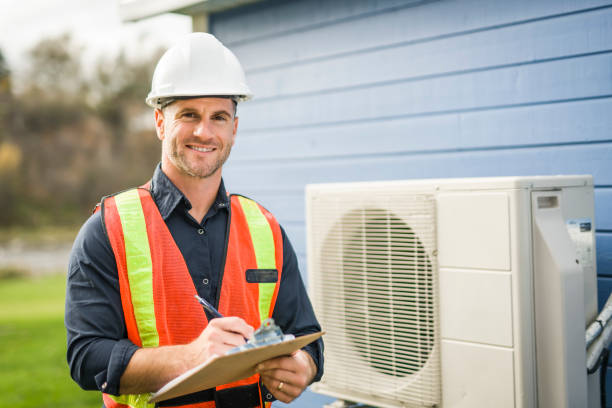Summer HVAC Preparation: Your Complete Guide
As temperatures rise and summer HVAC preparation becomes essential, homeowners must ensure their air conditioning system is ready to handle extreme heat. Proper summer HVAC preparation not only guarantees indoor comfort but also reduces energy costs and extends the lifespan of your equipment. Whether you’re facing summer heatwaves or simply want to stay cool throughout the warmer months, taking proactive steps to prepare your HVAC system for summer is crucial for maintaining a comfortable home all season long. Understanding HVAC basics helps you make informed decisions about system maintenance and care.
Why Summer HVAC Preparation Matters for Your Home
When it comes to summer HVAC preparation, most homeowners underestimate how much stress the extreme heat places on their cooling system. Your air conditioning unit must work continuously to combat rising temperatures and maintain proper airflow throughout your space. Without adequate summer HVAC preparation, you risk system failure, increased energy consumption, and poor indoor air quality that can affect your family’s health and comfort. According to heating and cooling maintenance guidelines, proactive maintenance is key to avoiding costly breakdowns during peak cooling season.
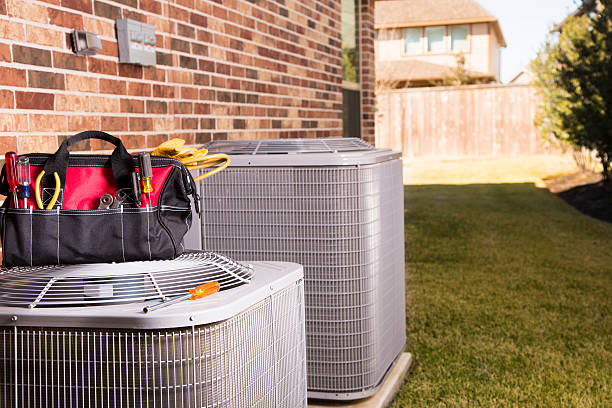
The summer months bring unique challenges that make summer HVAC preparation a non-negotiable task. High humidity, dust particles, pollen, and debris can clog air filters and reduce your HVAC system’s cooling capacity. By investing time in summer HVAC preparation before temperatures peak, you’re protecting your investment and ensuring home comfort remains uncompromised when you need it most.
Check Air Filters: The Foundation of Summer HVAC Preparation
One of the most critical aspects of summer HVAC preparation involves checking and replacing your air filters regularly. Dirty filters restrict proper airflow and force your air conditioning unit to work harder, significantly increasing energy costs. As part of your summer HVAC preparation routine, inspect filters monthly and replace them every one to three months depending on usage, pets, and indoor air quality needs. Choosing the best air filter for home HVAC systems can dramatically improve both efficiency and indoor air quality.
When you neglect air filters during summer HVAC preparation, several problems emerge. Clogged filters reduce air circulation, decrease cooling capacity, and allow dust and particles to circulate throughout your home. This compromises indoor air quality and can trigger allergies or respiratory issues. The Department of Energy reports that replacing clogged filters can lower your air conditioner’s energy consumption by 5 to 15 percent, making this simple step incredibly cost-effective.
Signs You Need to Replace Your Air Filters
- Visible dust and debris accumulated on the filter surface
- Reduced airflow from vents throughout your home
- Increased energy bills without changes in usage patterns
- More dust particles settling on furniture and surfaces
- HVAC system running longer to reach desired temperatures
- Allergy symptoms worsening when the system operates
Regular HVAC filter replacement is essential for maintaining peak performance throughout the summer months.
Prepare Your HVAC System Outdoor Unit for Maximum Efficiency
Your outdoor unit requires special attention during summer HVAC preparation because it’s exposed to weather, debris, and various environmental factors. Clear away leaves, twigs, grass clippings, and any vegetation within at least two feet of the unit to ensure proper airflow. Use a garden hose with gentle pressure to rinse the exterior fins, removing pollen, dirt, and accumulated grime that can hinder heat transfer and reduce your system’s cooling effectiveness.
Comprehensive summer HVAC preparation includes inspecting the outdoor unit for bent fins, refrigerant leaks, or unusual noises. Check that the unit sits level on its pad and that electrical connections remain tight and protected. Remove any objects, plants, or structures that might block air circulation around the condenser to prevent overheating and ensure your air conditioning system can effectively dissipate heat during extreme heat conditions.
| Summer HVAC Preparation Task | Frequency | Impact on Performance |
| Check air filters | Monthly | Improves airflow and indoor air quality |
| Clean outdoor unit | Spring/Before summer | Enhances cooling capacity and efficiency |
| Test thermostat | Spring | Ensures accurate temperature control |
| Professional tune up | Annually | Prevents breakdowns and extends equipment life |
| Inspect ductwork | Annually | Eliminates leaks and improves air circulation |
Optimize Your Programmable Thermostat for Summer Comfort
Smart thermostats and programmable thermostat systems play a vital role in summer HVAC preparation by allowing precise temperature control and automated scheduling. During your summer HVAC preparation, program your thermostat to reduce cooling when you’re away and restore comfortable temperatures before you return home. This strategic approach to temperature management can dramatically reduce energy costs without sacrificing comfort.
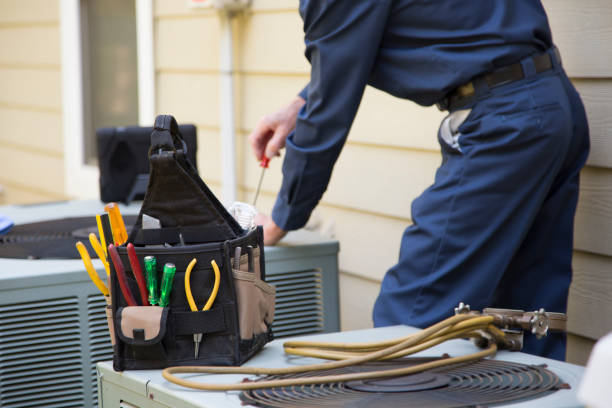
Setting your thermostat to around 78 degrees Fahrenheit when home represents an ideal balance between comfort and efficiency. Each degree you raise the temperature can save up to 3 percent on cooling costs. As part of your summer HVAC preparation, consider upgrading to a smart thermostat that learns your preferences and adjusts automatically, optimizing energy consumption while maintaining indoor comfort throughout the summer months.
Professional HVAC Maintenance: The Ultimate Summer HVAC Preparation
While DIY summer HVAC preparation tasks are important, scheduling professional AC maintenance remains the cornerstone of proper system care. Professional technicians performing summer HVAC preparation can identify potential issues before they become expensive repairs, test refrigerant levels, verify electrical connections, clean coils thoroughly, and ensure your entire system operates at peak performance.
A comprehensive professional tune up includes detailed inspection of all system components. Technicians measure refrigerant levels, test electrical systems, examine ductwork for leaks, clean evaporator and condenser coils, verify proper airflow, and calibrate the thermostat. Scheduling your professional summer HVAC preparation in spring offers multiple advantages including better technician availability, competitive rates, and time to address repairs before extreme heat arrives. Many HVAC companies like Callidus Air offer maintenance plans that provide priority scheduling and discounts on residential HVAC services.
Improve Indoor Air Quality During Summer HVAC Preparation
Summer HVAC preparation extends beyond mechanical components to encompass indoor air quality improvements. Clean vents and registers, inspect ductwork for dust buildup, consider professional duct cleaning if needed, and ensure proper ventilation throughout your home. Good indoor air quality contributes to better health, reduced allergens, and enhanced overall comfort during the summer long.
High humidity during summer months creates ideal conditions for mold growth within your HVAC system and ductwork. Part of effective summer HVAC preparation involves checking drain lines for clogs, ensuring condensate pans drain properly, and monitoring indoor humidity levels. Consider using ceiling fans to enhance air circulation and reduce the humidity that promotes mold growth, which can compromise both system performance and indoor air quality.
Top HVAC Tips to Maximize Energy Efficiency This Summer
Reducing energy costs remains a primary goal of summer HVAC preparation. Beyond maintaining your equipment, several strategies can minimize energy consumption without sacrificing comfort. These energy-saving measures complement your summer HVAC preparation efforts and can significantly reduce the stress on your cooling system. Learn more about how to reduce HVAC energy bills with proven strategies.
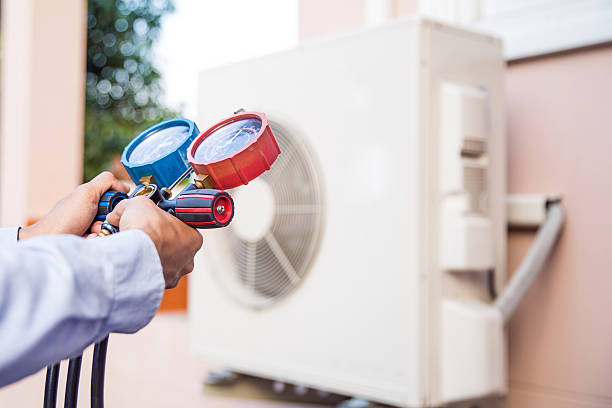
According to the Department of Energy, proper insulation and air sealing can reduce cooling costs by up to 20 percent. Here are essential energy-saving tips for summer:
- Install window treatments to block direct sun and reduce cooling load on your system
- Seal air leaks around windows, doors, and ductwork to prevent cool air from escaping
- Use ceiling fans to create air movement and allow higher thermostat settings
- Ensure adequate insulation in attics and walls to maintain indoor temperatures
- Close blinds during peak sun hours to reduce heat gain through windows
- Schedule high-heat activities like cooking or laundry during cooler parts of the day
- Close vents in unused rooms to focus cooling where needed most
Investing in most energy efficient HVAC systems can further reduce your long-term cooling costs while improving home comfort.
Common Summer HVAC Preparation Mistakes to Avoid
Even with good intentions, homeowners sometimes make mistakes during summer HVAC preparation that compromise system performance. Don’t neglect the outdoor unit while focusing solely on indoor components. Don’t set thermostats extremely low, as this strains the system without providing additional comfort. Don’t ignore unusual noises or smells, which often indicate problems that worsen without attention.
While many summer HVAC preparation tasks are homeowner-friendly, certain situations require professional expertise. Call for professional help if you notice refrigerant leaks, electrical issues, frozen coils, persistent water leaks, or if your system fails to cool adequately despite your preparation efforts. Attempting complex repairs without proper training can damage equipment and void warranties.
When to Consider HVAC System Upgrades or Replacement
Sometimes summer HVAC preparation reveals that your system needs replacement rather than repair. Consider replacement if your unit exceeds 15 years of age, requires frequent repairs, uses outdated R-22 refrigerant, or fails to maintain comfortable temperatures despite maintenance. Modern high-efficiency systems can reduce energy costs by 20-40 percent compared to older models, making replacement a worthwhile investment for long-term savings and reliability. Research shows that modern heating and cooling equipment significantly improves both performance and energy efficiency.
Work with qualified professionals like those at Callidus Air to assess whether repair or replacement makes sense for your situation. They can help you choose the best home HVAC system for your needs, evaluate your current system performance, discuss energy-efficient upgrade options, and ensure proper installation that maximizes cooling capacity and efficiency. Sometimes the most effective summer HVAC preparation is investing in new, reliable equipment designed to handle summer heatwaves efficiently.
Your Essential Summer HVAC Preparation Checklist
Develop a customized summer HVAC preparation checklist that addresses your home’s specific needs. Complete your checklist in early spring when HVAC professionals have better availability, allowing you to address any issues before peak cooling season.
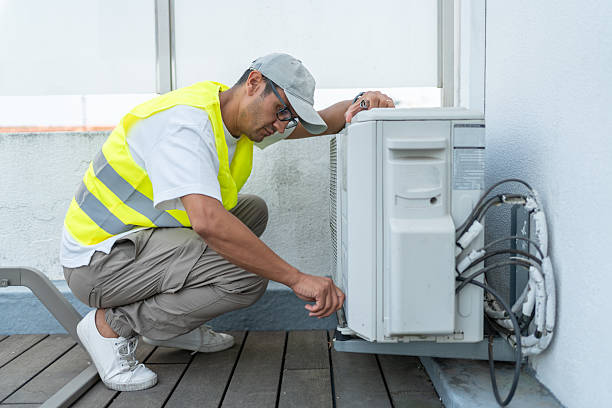
- Schedule professional maintenance inspection with certified technicians
- Replace or clean all air filters throughout your home
- Clean outdoor unit and clear surrounding area of debris
- Test thermostat function and replace batteries if needed
- Inspect and clean vents and registers for proper airflow
- Check condensate drain line for clogs and ensure drainage
- Test system operation before peak heat arrives
- Verify proper air circulation from all vents
- Seal any air leaks around windows, doors, and ductwork
- Review energy bills to identify potential efficiency issues
The Long-Term Benefits of Consistent Summer HVAC Preparation
While summer HVAC preparation focuses on immediate seasonal needs, regular maintenance throughout the year protects your investment long-term. Systems that receive consistent care experience fewer breakdowns, maintain better efficiency, and last significantly longer than neglected equipment. According to EPA indoor air quality research, regular filter changes can reduce energy use by 5-15 percent while proper maintenance significantly improves system performance and air quality.
Consider investing in a maintenance agreement with Callidus Air for both commercial HVAC service and residential needs for convenient year-round care.
Stay Cool and Comfortable All Summer Long
Comprehensive summer HVAC preparation ensures your home remains a comfortable sanctuary regardless of outdoor temperatures. By following these guidelines, you’ll enjoy reliable cooling, lower energy costs, and peace of mind throughout the summer months. Remember that summer HVAC preparation is an investment in comfort, efficiency, and equipment longevity.
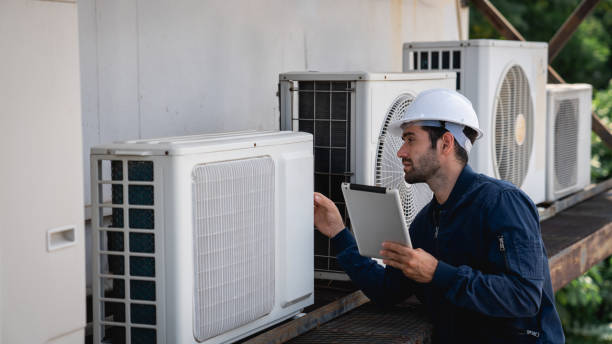
Don’t wait until the first heatwave to discover your system isn’t ready. Complete your summer HVAC preparation now to ensure your air conditioning system delivers the cool, comfortable environment your family deserves.
Get Professional Help with Your Summer HVAC Preparation
Ready to ensure your home stays cool and comfortable all summer? The experts at Callidus Air specialize in comprehensive summer HVAC preparation and maintenance services. Our experienced technicians can inspect your system, identify potential issues, and ensure everything operates at peak efficiency.
Don’t risk a breakdown during the hottest days of the year – contact us today to schedule your summer HVAC preparation service and enjoy worry-free comfort all season long.
Frequently Asked Questions About Summer HVAC Preparation
How often should I perform summer HVAC preparation on my system?
You should perform comprehensive summer HVAC preparation annually, ideally in spring before temperatures rise. Check air filters monthly, clean the outdoor unit at least once before summer, and schedule professional maintenance yearly. This regular attention ensures your system runs efficiently and reliably throughout the cooling season while preventing unexpected breakdowns during peak heat.
Can I handle summer HVAC preparation myself or should I hire a professional?
Many summer HVAC preparation tasks like changing filters, cleaning around the outdoor unit, and testing the thermostat are homeowner-friendly. However, professional maintenance should be part of your summer HVAC preparation as technicians can inspect refrigerant levels, test electrical components, clean internal coils, and identify potential problems that aren’t visible to homeowners. Combine DIY tasks with annual professional service for best results.
What’s the most important step in summer HVAC preparation?
While all aspects of summer HVAC preparation are important, scheduling professional maintenance is arguably the most critical step. Technicians can identify and address issues that might cause system failure during peak cooling season. Combined with regular filter changes and keeping the outdoor unit clean, professional maintenance ensures your system is truly ready for summer demands and operates efficiently throughout the season.
How much does professional summer HVAC preparation cost?
Professional summer HVAC preparation typically costs between $75 and $200 for a standard tune-up, depending on your location and system type. Many companies offer maintenance agreements that reduce per-visit costs and provide additional benefits like priority scheduling. This investment in summer HVAC preparation is cost-effective compared to emergency repairs or premature system replacement, and the energy savings often offset the maintenance expense.
What happens if I skip summer HVAC preparation?
Skipping summer HVAC preparation increases the risk of system breakdowns during extreme heat when you need cooling most. Neglected systems consume more energy, resulting in higher utility bills. You may experience reduced indoor air quality, inconsistent temperatures, and shortened equipment lifespan. The cost of emergency repairs during peak season typically far exceeds the investment in preventive summer HVAC preparation, making maintenance a smart financial decision.

